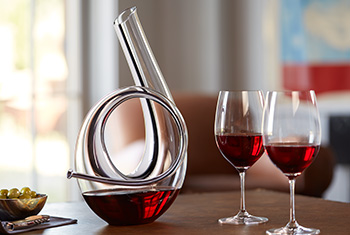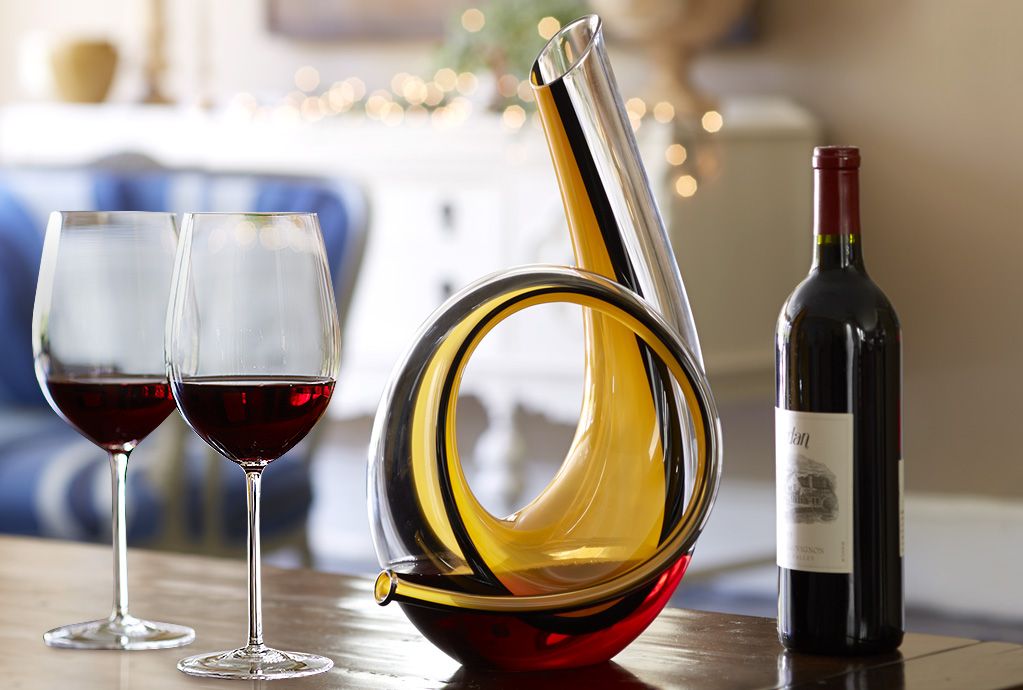

Decanting wine can be a controversial subject. Should you decant wine? Does it enhance the wine? What do experts recommend? Here are some examples of when you should decant a wine.
Young Red Wines
Big, bold reds such as Cabernet Sauvignon, Barolo or Zinfandel will benefit from decanting, because it helps soften tannins that are assertive in their youth. It also gives them time to open up and fully express their aromas and flavors. Wide based decanters with plenty of surface area work best for young wines.
Corks can break, falling into the bottle in pieces. Instead of fishing around to filter them, use an aerating funnel to pour the wine into a decanter. The built-in screen will easily remove cork pieces, solving the problem.
Aged Red Wines
Older wines, such as red Bordeaux or Châteauneuf-du-Pape don’t need to soften or open up. Extended time in a decanter will reduce the very characteristics of older wines that you want to retain. However, some older wines need to be decanted to remove the sediment and this is best done immediately before serving to retain its mature and delicate bouquet. Allow your wine to rest for at least an hour before you gently remove the cork and slowly pour it into a decanter while leaving the sediment in the bottle. Connoisseurs like to use a bright light source near the bottle to see when they’ve reached the sediment, but an easier way is to simply pour the wine through a wine filter with mesh screen to capture the sediment in the bottle.
White Wines
These will not generally benefit from decanting, but it does make a more impressive presentation than simply putting a bottle on the table. In that case, go for aesthetic value, such as the Riedel Horn decanter.